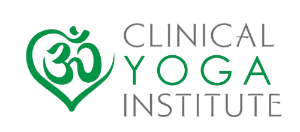Yoga has long been praised for its mental and physical benefits, but its potential impact on trauma and PTSD recovery is a lesser-known yet powerful aspect of the practice. Integrative medicine yoga programs have been gaining recognition for their ability to support those struggling with trauma and post-traumatic stress disorder by providing a holistic and gentle approach to healing.
Trauma and PTSD can have profound effects on both the mind and body, leading to symptoms such as anxiety, depression, hypervigilance, and emotional numbness. Traditional treatments such as therapy and medication play a critical role in addressing these issues, but integrative medicine yoga programs offer a unique supplement to these approaches.
Yoga provides a safe space for individuals to connect with their bodies, relax their nervous systems, and practice self-compassion. Through gentle movements, breathwork, and meditation, yoga helps individuals develop a greater sense of awareness, acceptance, and empowerment in their healing journey.
One of the key benefits of yoga is its ability to regulate the body’s stress response. Trauma and PTSD can trigger prolonged states of hyperarousal or hypoarousal, leading to chronic stress and negative health outcomes. Integrative medicine yoga programs help individuals restore balance to their nervous systems by activating the parasympathetic response, also known as the relaxation response. This can result in decreased levels of stress hormones, improved sleep, and reduced anxiety.
Moreover, yoga can help individuals process and release emotional trauma stored in the body. Physical practices such as asana (poses) and pranayama (breathwork) promote the release of tension and stuck energy, allowing individuals to experience a sense of freedom and release. Through mindful movement and breath, individuals can connect with their emotions, honor their experiences, and cultivate resilience.
Another benefit of integrative medicine yoga programs is their focus on self-care and self-compassion. Trauma and PTSD can lead individuals to disconnect from their bodies and emotions, creating feelings of shame, guilt, and unworthiness. Yoga encourages individuals to practice self-compassion, mindfulness, and non-judgment, fostering a sense of self-worth and self-acceptance.
In addition, the supportive community and non-judgmental environment of integrative medicine yoga programs can provide individuals with a sense of belonging and connection. This can be especially valuable for those who feel isolated or alienated by their experiences of trauma or PTSD.
Overall, integrative medicine yoga programs offer a holistic and supportive approach to trauma and PTSD recovery. By incorporating yoga into their healing journey, individuals can tap into their inner resources, regulate their nervous systems, process emotional trauma, and cultivate self-compassion. With its emphasis on mind-body connection and holistic healing, yoga can be a powerful tool for supporting recovery from trauma and PTSD.
——————-
Article posted by:
Clinical Yoga Institute | Online Accredited Yoga Teacher Training
https://www.clinicalyogainstitute.com/
United States
Embark on your journey to become a certified clinical yoga practitioner with our evidence-based online yoga teacher training program. Tailored for mental healthcare professionals, our flexible learning schedule fosters a supportive community of like-minded peers. Earn 30.5 NASW CEUs as you progress towards becoming a skilled professional in clinical yoga.
